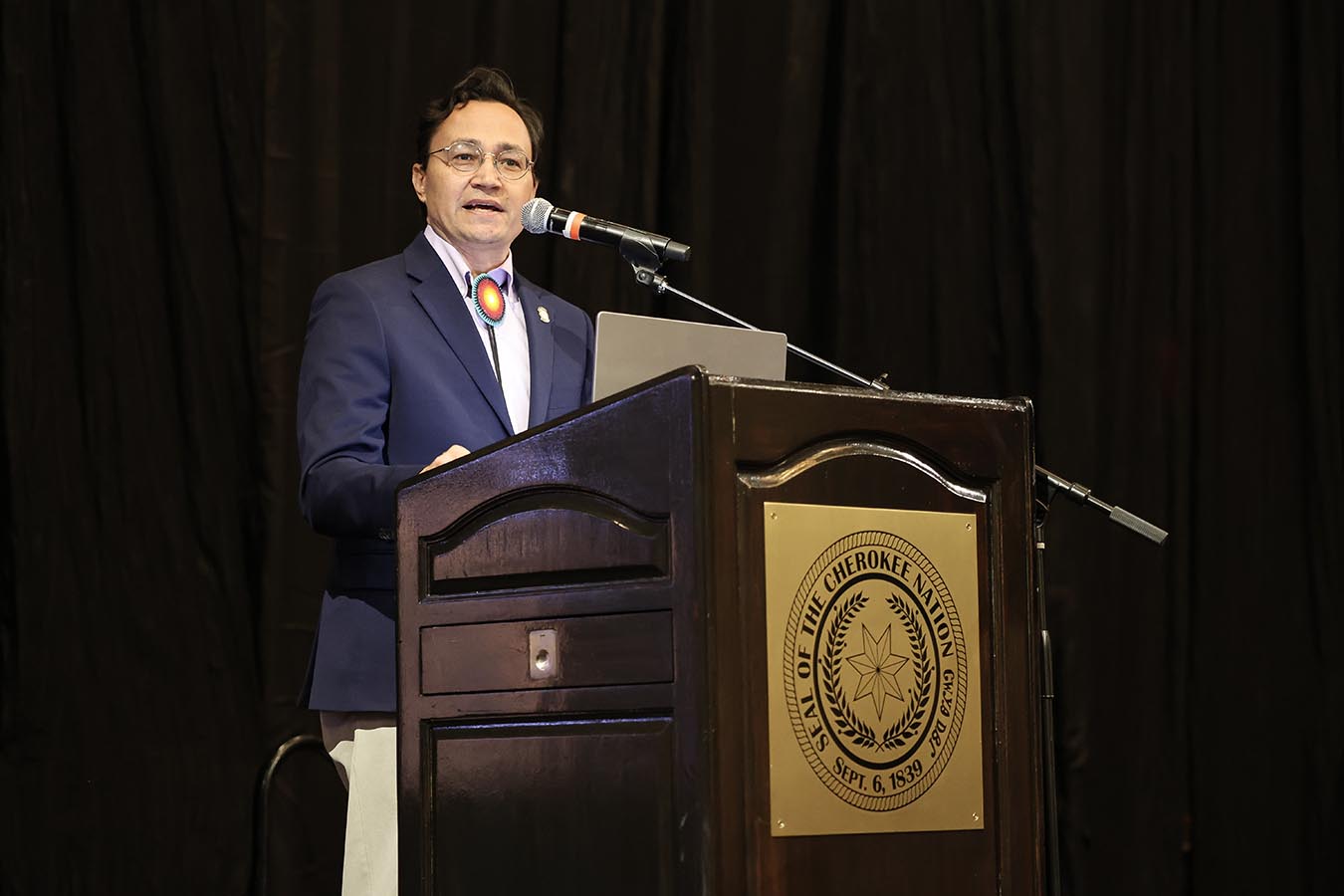TULSA, Okla. — The Cherokee Nation is working to improve educational, housing and financial opportunities available for survivors of domestic violence and is bolstering partnerships with organizations that also support those impacted by domestic violence.
Principal Chief Chuck Hoskin Jr. addressed the tribe’s newest initiatives on the final day of the Cherokee Nation’s “Families Are Sacred Summit,” which was held at the Hard Rock Hotel & Casino Tulsa April 18-20.
“Deputy Chief Bryan Warner and I are calling for increased support and are proud to have the support of the Council of the Cherokee Nation and our cabinet,” Chief Hoskin said. “We want to ensure survivors of domestic violence have educational and career-training opportunities through the tribe’s many programs, including our Education, Career Services and Housing departments. That will require removing some of the obstacles that often stand in their way, whether it is a financial burden they may face, a traditional deadline they may be unable to meet, or any number of other unique circumstances that sometimes arise. We will also expand access to temporary housing programs for survivors. We can offer financial literacy support to those who seek help through our ONE FIRE Victim Services program. First Lady January Hoskin is a strong advocate for addressing the needs of those who have faced domestic violence and has been a vocal supporter of these efforts, including the creation of our first Families Are Sacred Summit held here in the Cherokee Nation Reservation. Collectively, we hope all of these efforts will be a welcome relief to those who are navigating the very real impacts of domestic violence.”
Along with ensuring survivors of domestic violence find educational, financial and career-readiness assistance through tribal programs, Chief Hoskin and Deputy Chief Warner are also expanding the Cherokee Nation’s longstanding partnerships with domestic violence advocacy groups and organizations across the 14-county reservation.
“Domestic violence impacts all of us, whether directly or indirectly,” Deputy Chief Warner said. “It’s a blessing to have so many advocates all across Northeast Oklahoma who are out there working every day to make meaningful change. We value these partnerships with advocates and we look forward to providing them with additional resources. Working together, we’re going to make more strides toward ending domestic violence.”
Cherokee Nation Health Services is also partnering with Oklahoma State University to prevent, mitigate and assist with recovery efforts of survivors of domestic violence. These efforts include identifying victims of domestic violence within the tribe’s health system and providing culturally integrated groups that focus on preventative factors rooted in Cherokee values. The partnership also includes expanded telemedicine for survivors of domestic violence, including behavioral health services and counseling.
The Cherokee Nation's efforts to address the barriers that domestic violence survivors experience is part of a larger effort to reduce rates of domestic violence, strengthen Cherokee families and create a stronger network of advocates on and off the Cherokee Nation Reservation.
This week’s Families Are Scared Summit hosted hundreds of local, state and tribal law enforcement officers, prosecutors, judges, court staff, emergency medical service workers, healthcare providers and advocates in a collaborative, educational setting. The goal of the Cherokee Nation’s summit was to share best practices for delivering safe, effective services for survivors of domestic violence across the state.

